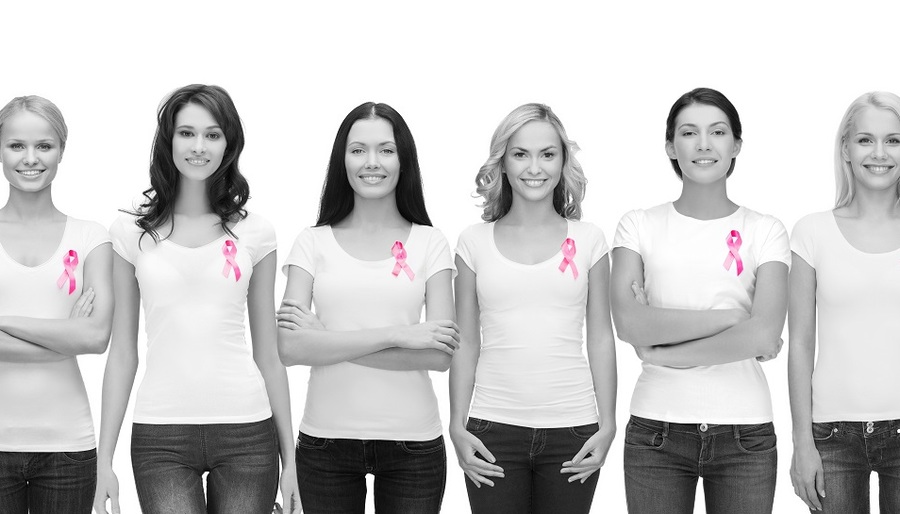A cancer diagnosis is a life-changing event for individuals to the point that it makes them feel anxious along with fear and a diminished sense of control over life.
Coping with the physical, emotional and psychological challenges of cancer can be incredibly difficult, which is why social support plays a key role in the journey to treatment for cancer patients. Social support encompasses a wide range of resources, including emotional, informational, tangible and practical support, and can come from a variety of sources, including family, friends, healthcare providers, support groups and communities.
Emotional support is the fundamental component of social support for cancer patients, as coping with cancer can cause immense emotional distress, such as fear, grief, anger and anxiety.
Where do we want to go? Can knowledge from inclusion with one another be the solution to alleviate psychological distress?
Having a support system can provide cancer patients with a safe space to express their feelings, be heard and receive understanding through empathy. Emotional support can help relieve the psychological burden of cancer, reduce stress and improve mental health outcomes. Studies have shown that cancer patients who receive emotional support from loved ones or participate in support groups experience lower levels of anxiety and depression and have improved quality of life.
Valid information: knowing where we are going.
Informational support is another critical aspect of social support for cancer patients. Understanding the complexities of cancer, treatment options and the healthcare system in general can be an important knowledge tool in order for the patient to know where they are going and what they need to “build” psychologically to cope with the difficult stage of treatment.
Also, access to accurate and reliable information can empower cancer patients to make informed decisions about their treatment plans, manage side effects and engage in self-care practices. Healthcare providers, cancer support organisations and authoritative online resources can provide valuable informational support to patients and their caregivers, enabling them to better cope with the challenges of cancer.
Lean on me.
Social support can take many different forms. One of these is tangible support, which includes help with practical tasks, making it essential for cancer patients. Cancer treatments can be physically demanding and exhausting. Support such as transport to appointments, meal preparation and household chores can significantly ease the burden on patients and their carers, allowing them to focus on their treatment and recovery. Friends, family and community organizations can provide essential support that helps patients manage their daily activities and maintain a sense of normalcy during a difficult time.
I change you the moment you change me.
Social support also plays a critical role in improving treatment outcomes for cancer patients. Research has shown that patients with strong social support systems tend to have better adherence and commitment to treatment plans, better physical recovery and a reduced risk of complications. Social support can also have a positive impact on cancer patients’ immune systems, reduce inflammation and enhance overall physiological function, contributing to better treatment outcomes. In addition, social support can provide cancer patients with a sense of hope, motivation and purpose, which can enhance resilience and coping skills, ultimately improving their ability to manage the challenges of cancer.
We are together and we are moving forward.
In addition to the emotional, informational, tangible and treatment-related benefits, social support can also create a sense of community for cancer patients. Joining support groups, connecting with others who have similar experiences and participating in cancer-related events can provide a sense of belonging and reduce feelings of isolation. Social support can also enhance a sense of inclusion and normalisation as patients realise that they are not alone in their journey and can draw strength from others who have successfully gone through similar challenges (“I went through this stage too and now I am here for you”). Building social connections and meaningful relationships can provide cancer patients with a sense of purpose, social engagement and improved overall wellbeing.
It is important to note that social support is not a one-size-fits-all approach and may vary according to individual preferences, cultural norms and personal circumstances (closed and open social). Some patients may prefer more private forms of support, while others may find comfort in larger support groups. The type and amount of social support required may also change during the cancer course and it is important that patients’ choices and boundaries are respected.
In closing, I would say that sometimes, if possible, it is good to let go, not to be afraid of what we have to say (let us judge and be judged under the umbrella of a healthy process) and let the environment decide what stays and goes from a discussion about the concern raised in each case. This leads us to the choice of the most appropriate behaviour.
Inclusion brings feedback and then eventual revision.
**Please note that it is always recommended to consult multiple sources and to consult health professionals for individualized medical advice.**
For useful information – resources:
- National Cancer Institute (NCI) – Social Support for People with Cancer: This comprehensive resource from the NCI provides information on the different types of social support and their benefits for cancer patients. Available at: https://www.cancer.gov/about-cancer/coping/feelings/support-for-people-with-cancer
- American Cancer Society (ACS) – Social Support for Cancer Patients: The ACS offers information on the role of social support in cancer care, including emotional, informational, and instrumental support. Available at: https://www.cancer.org/treatment/caregivers/social-support.html
- National Comprehensive Cancer Network (NCCN) – Distress Management: The NCCN guidelines on distress management in cancer care emphasize the importance of social support for addressing emotional and practical needs of patients. Available at: https://www.nccn.org/patients/resources/life_with_cancer/managing_symptoms/distress.aspx
- S. Department of Health and Human Services – Cancer Support: The official website of the U.S. government provides information on the benefits of social support for cancer patients and offers resources for finding support groups and services. Available at: https://www.cancer.gov/about-cancer/coping/adjusting-to-cancer/support
- Journal of Clinical Oncology – Social Support and Cancer: A review article that discusses the impact of social support on cancer patients’ psychological, emotional, and physical well-being. Available at: https://ascopubs.org/doi/abs/10.1200/JCO.2013.50.9967



